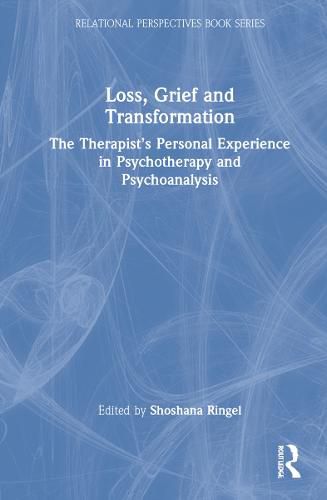Readings Newsletter
Become a Readings Member to make your shopping experience even easier.
Sign in or sign up for free!
You’re not far away from qualifying for FREE standard shipping within Australia
You’ve qualified for FREE standard shipping within Australia
The cart is loading…






This book is a timely and relevant book for psychotherapists and psychoanalysts who process loss both in their own lives and in the lives of their patients, offering perspectives from a range of theoretical backgrounds, clinical vignettes and personal insights.
This volume addresses the scope of grief and mourning between the therapeutic dyad, and carefully examines how the patient and therapist experience intersect and imbue the analytic space and the therapeutic process. The book examines personal loss of parents and partners, as well as loss generated by mass trauma through the lens of the Holocaust, the immigrant experience, the COVID-19 pandemic and the environment. There are chapters that cover how the lost other continues to live within one’s mind, and within the analytic relationship, how loss impacts one’s internal self system, and how loss associated with traumatic experience with the deceased continues to reverberate.
With a unique focus on the therapist’s personal experience of loss, and how it shapes the clinical situation, as well as a broad range of perspectives on managing and working with loss in patients, this is an invaluable book for all practicing psychoanalysts and psychotherapists.
$9.00 standard shipping within Australia
FREE standard shipping within Australia for orders over $100.00
Express & International shipping calculated at checkout
This book is a timely and relevant book for psychotherapists and psychoanalysts who process loss both in their own lives and in the lives of their patients, offering perspectives from a range of theoretical backgrounds, clinical vignettes and personal insights.
This volume addresses the scope of grief and mourning between the therapeutic dyad, and carefully examines how the patient and therapist experience intersect and imbue the analytic space and the therapeutic process. The book examines personal loss of parents and partners, as well as loss generated by mass trauma through the lens of the Holocaust, the immigrant experience, the COVID-19 pandemic and the environment. There are chapters that cover how the lost other continues to live within one’s mind, and within the analytic relationship, how loss impacts one’s internal self system, and how loss associated with traumatic experience with the deceased continues to reverberate.
With a unique focus on the therapist’s personal experience of loss, and how it shapes the clinical situation, as well as a broad range of perspectives on managing and working with loss in patients, this is an invaluable book for all practicing psychoanalysts and psychotherapists.